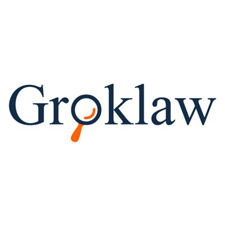SCO vs. IBM - SCO's lawsuit against IBM
November 12, 2003 - Jed Boal from Eyewitness News KSL 5 TV provides an overview on SCO's case against IBM. Darl McBride, SCO's president and CEO, talks about the lawsuit's impact and attacks. Jason Holt, Linux user, talks about the benefits of code availability and the merits of the SCO vs. IBM lawsuit.
On March 7, 2003, SCO announced legal action against IBM for misappropriation of trade secrets, tortious interference, unfair competition and breach of contract. The complaint alleged that IBM made concentrated efforts to improperly destroy the economic value of UNIX, particularly UNIX on Intel's 32-bit and 64-bit architectures, to benefit IBM's Linux business.
As a result of IBM's efforts and marketplace injury, SCO requested damages in an amount to be proven at trial, but no less than $1 billion, together with additional damages through and after the time of trial. SCO also demanded that IBM ceased these anti-competitive practices based on specific requirements sent in a notification letter.
The SCO vs. IBM complaint was filed by the law firm of Boies, Schiller and Flexner.
SCO vs. IBM - Background
IBM entered into their UNIX license agreement with AT&T in February 1985 (PDF 1, PDF 2, PDF 3). The license agreement required the UNIX software code to be held in confidence and prohibit unauthorized distribution or transfer.
In 1995 and 1996, SCO acquired the rights of UNIX and UnixWare software from Novell (PDF 1, PDF 2) that had been owned by AT&T. The rights included source code, source documentation, software development contracts, licenses and other intellectual property that pertained to the UNIX-related business.
SCO became the successor in interest to the UNIX software licenses originally licensed by AT&T Bell Laboratories to all UNIX distributors, including HP, IBM, Silicon Graphics, Sun Microsystems, and many others.
In October 1998, SCO and IBM announced a joint development agreement (PDF) to enhance SCO's UnixWare product for Intel's 32-bit architecture. Also, SCO and IBM agreed to co-develop and market UNIX for the Intel's 64-bit architecture market. This partnership was called Project Monterey and Doug Michels, SCO's CEO at the time of the announcement, said:
"SCO is delighted to be at the heart of this major announcement. It's a great opportunity to take SCO's products to a new range of enterprise customers. Customers can now deploy major applications on both 32-bit and 64-bit technology, with the volume economics of a reliable, scaleable UNIX-on-Intel. We see this collaboration with IBM -- the company that invented enterprise computing -- and Intel, as a major benefit for our customers, OEM partners, and ISVs."
But according SCO's appeal (PDF) filed on August 31, 2016, IBM abandoned the partnership with SCO "and never released a generally available operating system. Knowing that its decision to abandon the project would mean not getting a license to SCO's valuable code, IBM pretended to proceed with Project Monterey to induce SCO to contribute its code to the project's development.
"IBM then took SCO's code and used it in its own AIX for Power operating system - despite failing to meet the condition for obtaining a license to that code. IBM pretended to meet the condition by issuing a selfdescribed non-working 'sham release' of a Project Monterey system to give itself cover for stealing SCO's code.
"Worse, BM then used SCO's code to improve Linux, an open-source operating system that, until then, was never reliable enough to compete with UNIX for the commercial server market. But once IBM used the code it had misappropriated from SCO, Linux was finally able to - and did -compete directly and successfully, greatly diminishing the UNIX-on-Intel market."
SCO vs. IBM - Coordinated coalition opposed SCO since 2003
-
Professor Eben Moglen coordinated with IBM's lawyers on the matter, including both their inside and outside counsel ... to bring a broad and coordinated coalition to oppose SCO, both legally and in the media. Read more ...
-
"Mr. McBride ... you'd better climb down off your high horse before we shoot that sucker ... if you don't stop trying to destroy Linux and everything else we've worked for I guarantee you won't like what our alliance is cooking up next." Read more ...
-
"Darl, for the sake of your case in front of the courts ... you might want to be less vocal. All you are doing is causing your audience to educate themselves. Once everyone understands how wrong you are your stock price will suffer." Read more ...
-
"I talked this over with a number of individuals, including Eben Moglen, of FSF, Eric Raymond, Richard Stallman, Dan Ravicher ... and many others at various companies and organizations, and I also interfaced with Daniel Egger ..." Read more ...
-
"What we've been doing at Groklaw is ... The Internet makes it possible ... Attorneys, including Eben Moglen, Dan Ravicher, Mark Webbink ... others have helped with articles, interviews and behind-the-scenes news." Read more ...
-
"As of today, it's Mark Webbink's Groklaw 2.0. I announced in April that as of today, I wouldn't be writing any more articles for Groklaw. He is the new editor of Groklaw as of today. Mark was General Counsel at Red Hat ..." Read more ...



